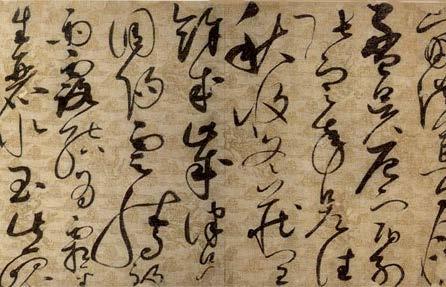
2 minute read
Power of writing
Power of writing
HILLARY WAN, BA FASHION DESIGN AND DEVELOPMENT, UAL.
Advertisement

Ever since I was a child, I was being taught the disciplines of “forgiveness” and “not attracting attentions to yourself”, as I am suppose to be a humble quiet girl now, and will be a humble quiet wife in the future. This faulty thinking has affected me greatly when encountering unpleasant experiences especially targeting me as a Chinese studying abroad. The course provided an academic key text that uses extreme biased examples targeting Chinese people. For example, “China seeks to imitate the West in everything, without understanding the reason why.” (Bartlett, Cole, and Rocamora, 2013) When questioning the key text’s integrity, the tutor replied with “misunderstanding” and “over analyzing” the text. After pointing out the specific examples that are offensive and requiring an explanation to the phrase “misunderstanding the language”, the tutor swerved the conversation and did not reply with a straight answer. My family told me that there is nothing I can do, and the “haters will always hate”. Even when facing racial discrimination from fellow students, I was told by my parents to stay calm and let it go because I am in a foreign country, “their territory” is the phrase they used. This is just the tip of the iceberg on how I was treated by the university and how a traditional Chinese family would react when facing discrimination targeting Asians. With the culture and society feeding into the impression of “Madam Butterfly”, it is difficult to break out from the social normality that were being fed to me. It is even harder when the education system that I should have learned equality and liberation from, had failed to teach students important moral lessons, or even consider the possibility of respecting the voice and opinions of a person who traveled thousands of miles away from their home seeking education that they think the country should provide.
Reflecting on the past, I am lucky, standing on the shoulders of the giants that had fought many battles for the life that I have for now. Discrimination still exists, and will always exist whether the the person is conscious about the action or not. “Humans, either burst from silence, or perish from it.” (Lu, 1926) It is time for me to join in the battle and continue to fight to educate the ones that needed it. I am more than grateful to be able to have a chance to speak for myself and hopefully many others that faced the same problems like I did. This chance, not just to work for a better education experience, but also to be the infantry, to fight for the rights that should have never been taken away in the first place.
If the educational system has a wide variety of staff from different background culture and key text from different culture, I believe the feeling of alienation would greatly decrease. Students should be encouraged to translate and bring resources from their own culture to the university, expanding the school’s database and present more viewpoints for academics to think about. “We have come to live in a world of culture as fashion, in which each of us can pick and choose cultural identities like we pick and choose clothes.” (Mathews, 2000) If studying in a diverse environment and being exposed to equality is the needle and thread for the “clothes”. What we can do now is to present and design as much garments that no one is excluded or does not feel comfortable in. And one day, people will start to wear each others shoes, and fully appreciate the splendid possibilities of understanding and embracing a new culture.
Bartlett, D., Cole, S. and Rocamora, A. (2013). Fashion media. London: Bloomsbury, p.145. Lu, X. (1926). In Memory of Miss Liu HeZhen. Yu Si, 74. Mathews, Gordon. (2000). Global Culture/ Individual Identity: Searching for home in the cultural supermarket. 1st ed. Oxon: Routledge. Picture: The Loner (2011). [video] Korea: Sticky Monster Lab.









